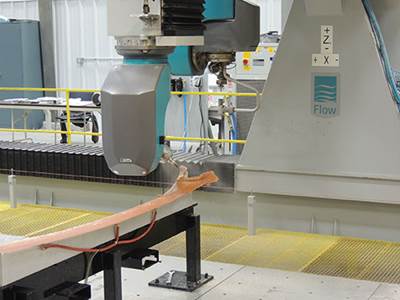Cutting Tools
Turning Center Enables Off-Center Machining
Okuma’s Genos L300-MY turning center features a Y axis for off-center milling, drilling and tapping capability.
Read MoreChipbreaker Designed for Swiss Turning
Sumitomo Electric Carbide offers its MESI Chipbreaker for Swiss turning and small-parts machining, including medical applications.
Read MoreEntry-Level Tool Presetter Resists Temperature Fluctuation
The Diaset 240 contact presetter from Big Kaiser Precision Tooling features mineral cast construction, an updated spindle and a new digital control readout.
Read MoreStorage Cabinet Accommodates 30 Toolholders
The Huot Workstation provides a solid, stable storage space with a functional top surface.
Read MoreTool Vending Systems: Value Beyond Cost Control
Learn how can a tool vending system can also be a learning tool.
Read MoreHead-Changeable Drills Reduce Cycle Time
Tungaloy’s DrillMeister series of head-changeable drills are designed to offer the productivity of solid carbide drills with the economic and cycle time reductions associated with indexable drills.
Read MoreTool Presetter Offers User-Friendly Operating System
The Smile presetter and measurement machine from Zoller features a user-friendly interface and a new ergonomic table system design.
Read MoreManaging the Micro-Milling Process with Tiny Cutters
The engineering of this line of small end mills brings out both the challenges and opportunities in milling hard-to-machine materials on a micro scale.
Read MoreCarbide Drills Offer Coolant-Through Capability
OSG Tap & Die’s Hy-Pro-Carb drill series now features 8D sizes.
Read MoreSetting the Stage for Sizeable Composites Work
By adding a five-axis waterjet/milling machine, its biggest autoclave and a more expansive lay-up room, Royal Engineered Composites is positioning itself to win larger-scale aerospace work it sees on the horizon.
Read More











.png;maxWidth=300;quality=90)





